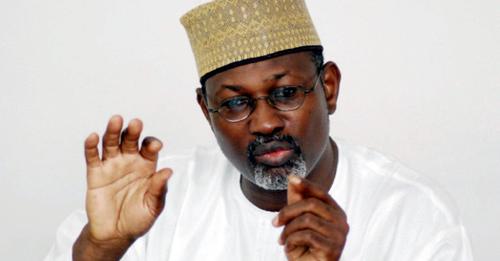Nigeria
“Facing the Test: Nigeria Struggling with Issues, Yet to Cross the Line into Failure” — Jega

Professor Attahiru Jega, a former chairman of the Independent National Electoral Commission (INEC), stated that although many people believe that Nigeria has failed, the country is actually on the verge of failing.
He therefore stated that Nigeria is currently dealing with enormous, varied, and verifiable difficulties that, if not successfully and quickly addressed in a timely manner, would jeopardise both the country’s future and the future of its people.
“Anywhere in the continents of the world, in which a country of over 200 million is in jeopardy, the consequences would be wide-ranging and calamitous,” the University Don added.
Thus, he declared, “tackling these issues and re-prioritizing the Nigerian state’s policies and strategies towards addressing the fundamental needs and aspirations of citizens, especially socioeconomic wellbeing and human security, is necessary to safeguard Nigeria’s future, and by extension that of Africa.”
Over the weekend, the political science professor gave a pre-convocation lecture at Bauchi State-owned Sa’adu Zungur University in Gadau. His paper, “Safeguarding Nigeria’s Future: Prioritising Citizen’s Welfare and Security Amidst Challenges,” was given.
Restructuring Nigeria before to the upcoming general elections in 2027, in his opinion, will be the best thing that has happened for the welfare of the nation and its people.
Although Jega argued that Nigeria is a failed state, he did urge for the Federal Government’s rights over resources to be reduced.
“Safeguarding Nigeria’s Future, and Prioritising Citizen Welfare and Security amidst Challenges” was the theme of the paper.
He was certain that evidence-based constitutional reforms should be implemented in order to restructure Nigeria. The goals of these reforms should be to transfer authority and funds from the federal level to the states and local governments.
In addition, he asked Nigeria’s leaders to share and adapt to our unique context and circumstances by studying the “best practices” model Federations of Countries such as those in India, Canada, and the USA.
Similar to how the Nigerian economy was structured, it was largely created to meet and serve the economic interests of the colonial powers.
He claims that long after colonial rule ended, the Nigerian economy was embedded and integrated into the global capitalist system, promoting the production of primary commodities for export, mostly to Europe, and importing finished goods from all over the world, as opposed to producing commodities through industrial production and manufacturing for the domestic market as well as export.
“No new States and Local Governments should be created,” he declared. All 36 states and the Federal Capital Territory would become financially viable and able to support grassroots development thanks to the additional resources that the current states would receive from the deconcentration of power and resources as suggested above.
“Transparency and accountability must be strengthened, and effective anti-corruption oversight must be implemented,” Attahiru Jega continued. “The cost of governance at the federal, state, and local tiers of governance needs to be drastically cut.”
